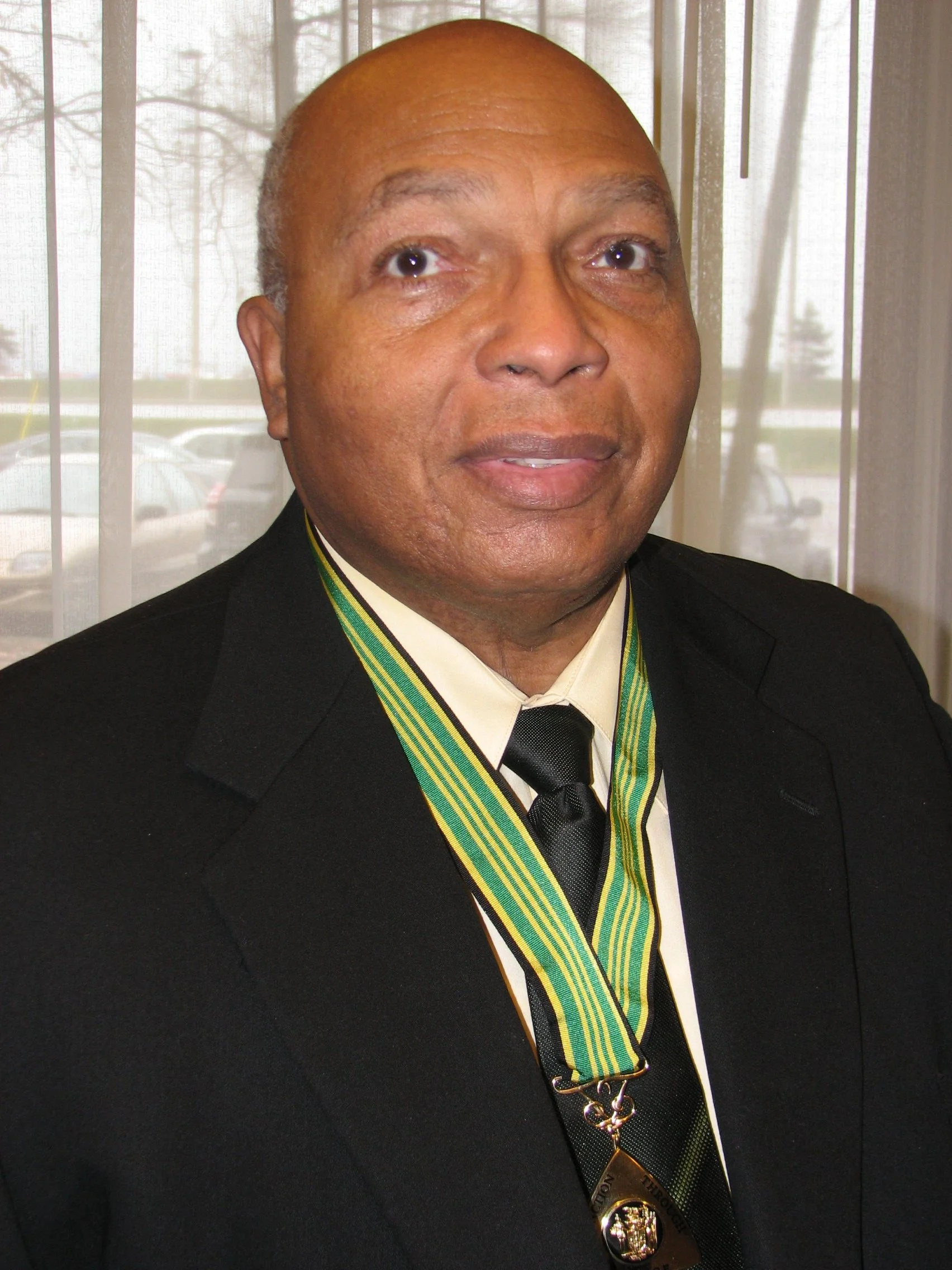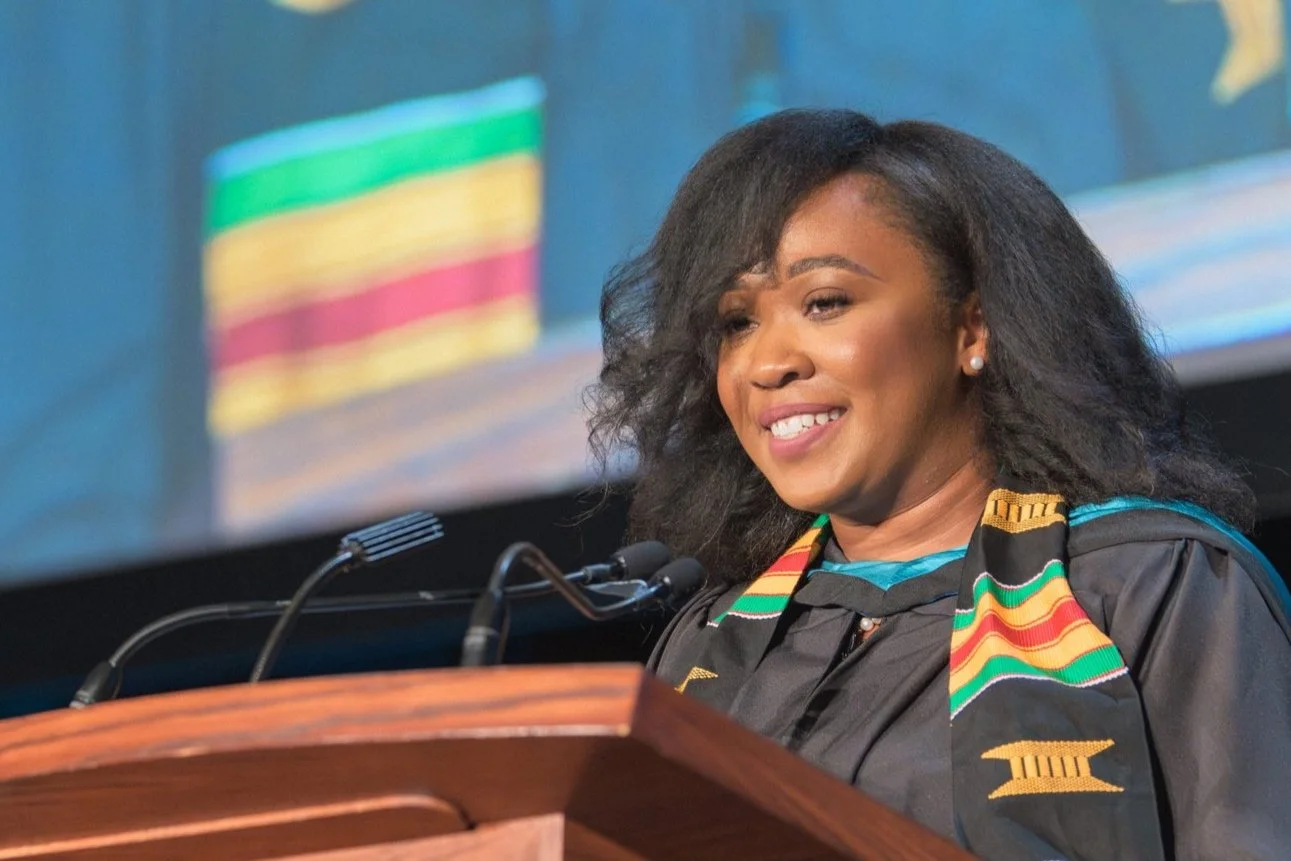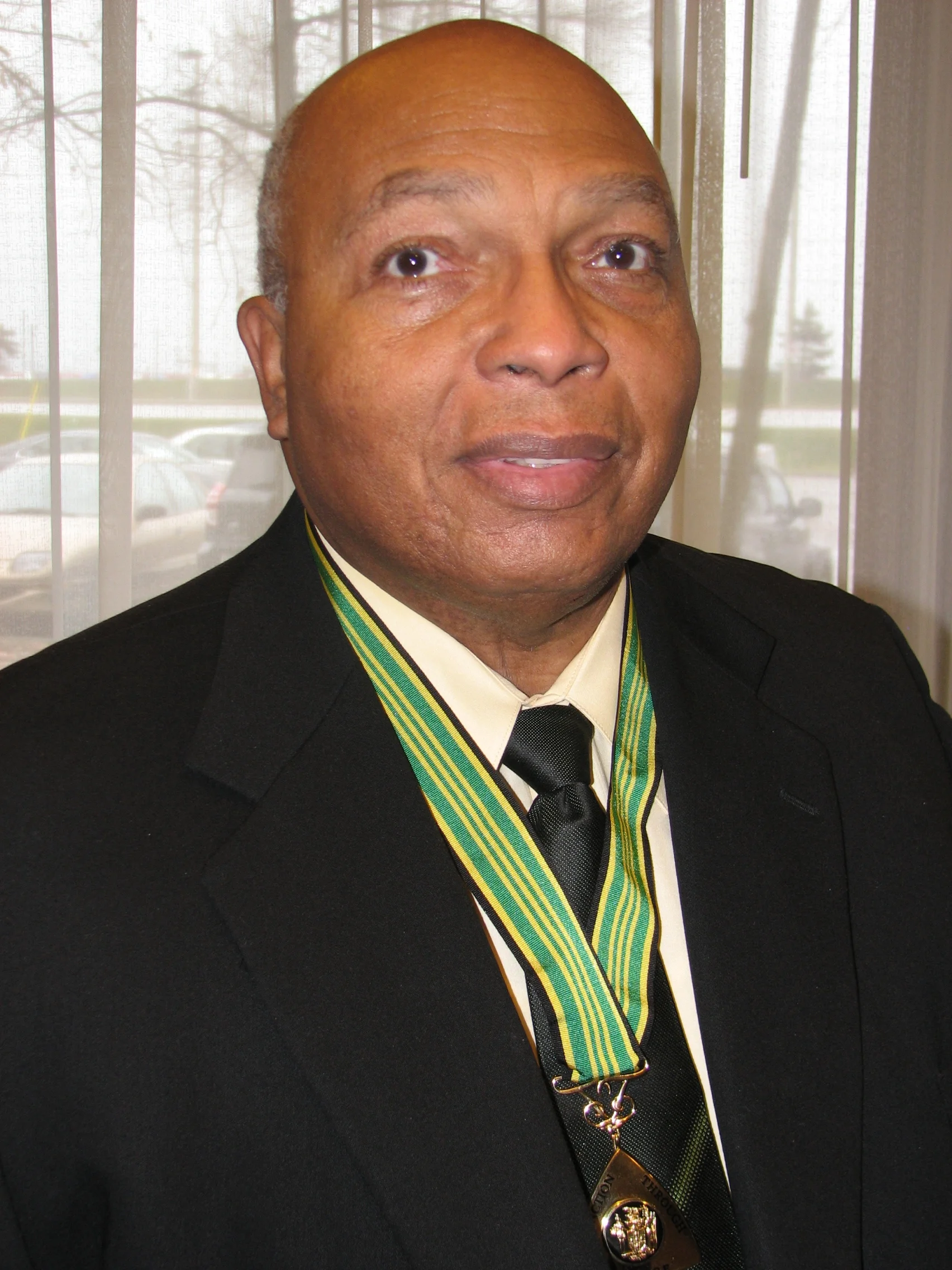Ewart Walters was a stalwart in Ottawa's Black community
August 1, 2023
When Ottawa began the search for a Police Chief four years ago in the wake of a report detailing a high level of disconnect between the Service and the community, Ewart Walters encouraged Peter Sloly to apply for the job that he did and got.
Through Black Agenda Noir that is an advocacy group in the nation’s capital that Walters was affiliated with, city councilors on the Ottawa Police Services Board and the Mayor were lobbied on Sloly’s behalf.
“At the end of the day, Peter was the best candidate for the post,” he said in 2016. “The kind of experience he brings to the job is beyond what the other candidates have.”
Walters knew a good thing when he saw it.
That was just one instance of the community builder and leader taking the bull by the horn to advocate for someone who he knew was more than qualified for a leadership position.
He passed away on July 27 in Ottawa at age 83.
Based on Walters and Carl Nicholson (former Catholic Immigration Centre Executive Director) reputations, Sloly took their encouragement to apply seriously.
The retired Toronto Police Service Deputy Chief said the deceased was a good friend and ally.
“Ewart was among the best of a generation that is rapidly leaving us,” said Sloly who resigned from Ottawa Police Service in February 2022. “He was a community elder, intellectual giant and a great communicator who understood humanity. I saw that in how he represented himself and community-based organizations when he came before the Police Board and in the types of op-ed pieces he wrote on a regular basis.
“When he convened small gatherings of community leaders around his kitchen table, I had the good fortune to be invited to a few of them. It was obvious he was a natural communicator who was very good at bringing the right people together around the right issues. He had huge amounts of wisdom and was always willing to share it.”
For Walters, a proud graduate of Calabar High School, writing was an obsession.
He spent a year with ‘The Public Opinion’ co-founded by Englishman Headley Jacobs and Osmond Theodore (OT) Fairclough who, after eight years working in the banking industry in Haiti, was unable to secure a job in that sector in Jamaica when he returned because of his skin colour.
As a result, the People’s National Party (PNP) co-founder started the newspaper, which folded in 1962, to promulgate his nationhood ideas.
Walters and former sportswriter/broadcaster Errol Townshend were firm friends for nearly 70 years.
“We entered journalism in the heady days of West Indian Federation at ‘The Public Opinion’,” noted the lawyer and retired Canadian cricket administrator. “He was an excellent journalist and a man of high integrity who shared my passion for cricket.”
An opening batsman at Kensington Cricket Club in Jamaica, Walters was a member of Bel-Air Cricket Club in Ottawa for many years.
Retired civil servant Wally Boxhill, who played for rival club New Edinburgh in the 1970s, said Ottawa’s Black community has lost a giant.
“Off the field, we had some engaging discussions about the ‘best’ educational institutions in the Caribbean,” recalled the Queen’s College graduate. “The time he spent at Carleton University in the 1960s kindled the spirit of involvement, activism and Caribbean and Black pride. He was active in the Jamaican, Caribbean and Ottawa’s Black community in every sense of the word.”
Ewart Walters was a stalwart in Ottawa’s Black community (Photo by Ron Fanfair)
Pannist and writer Oscar Wailoo also played for New Edinburgh in the 1970s.
“I remember Ewart being late for a game at Rideau Hall and showing up with his white cricket uniform and pads on just before the start,” he recounted. “He was a defensive opener with a decent technique and a good gentleman to be around.”
Coming to Canada in September 1964 on a journalism scholarship, Walters was the first Black editor of Carleton University’s weekly student newspaper.
To mark his first Christmas outside Jamaica, he arranged with CBC for foreign students in Ottawa to send Xmas greetings back to their birth countries. The next year, he wrote and broadcast a program of Jamaican music on CKOY for the island’s third independence anniversary in 1965.
On his return to Jamaica, Walters wrote for the ‘Jamaica Gleaner’ and the ‘Daily News’ and served for five years as Jamaica’s Counsellor in Ottawa and a year as Consul in New York.
After leaving the Jamaica Foreign Service, he started ‘The Spectrum’ community monthly newspaper that lasted three decades until 2013.
“The newspaper was a remarkable feat of courage and endurance,” said Townshend.
Radio and television personality Sarah Onyango contributed to ‘The Spectrum’ from 1994 until it folded a decade ago because of declining financial support and Walters’ desire to focus on writing books.
“Ewart has left an indelible mark on the Ottawa community through his work with the newspaper which was a voice for the voiceless, his steadfast advocacy for justice for the little guy and his desire for accountability from the institutional ‘powers that-be’,” said the professional translator. “To the citizen journalists amongst us, he set a high standard with regard to getting at the facts and the truth to not only expose wrongdoing and incompetence, but to enlighten and empower his fellow citizens. He was a trusted and reliable mentor who always gave me great story ideas for our radio show ‘Black on Black’ on CHUO 89.1FM. He also encouraged me in moments of doubt. That deep booming Jamaican-accented voice will be so greatly missed.”
As Chairman of the Jamaica50 Ottawa celebrations, Walters arranged for the Jamaica Military Band to perform in Canada’s capital city in 2012.
Three years later, he launched ‘We Come from Jamaica: The National Movement 1937-1962’, that paid tribute to several Jamaicans who are not household names.
Ewart Walters (r) presented a copy of his book to then Jamaica Consul General in Toronto George Ramocan at the book launch in the city (Photo by Ron Fanfair)
They include Amy Bailey who campaigned for Jamaicans to be employed in stores and offices and fought relentlessly for women’s liberation before her death in 1980 at age 95 and University College of the West Indies co-founder Sir Philip Sherlock and his brother Hugh Sherlock who penned the words of the Jamaican national anthem and created Boys Town, one of the most effective inner city institutions.
“That book was a masterpiece that painstakingly encapsulated his enduring love and optimism for the land of his birth,” Townshend added. “We have lost a champion.”
Professor Emeritus Keith Ellis, who attended Calabar with Walters, called the book ‘a masterpiece and significant literary and historical body of work that all Jamaicans should be proud of’.
“The publication charts the course of the national movement, a period and group of people who were instrumental in propelling Jamaica out of slavery and ‘apprenticeship’ to nationhood and independence,” said the first Jamaican-born scholar to be awarded an honourary doctorate by the University of Havana at the book launch in Toronto. “This is the book of an outstanding essayist.”
As a young boy, Ellis said Walters was very engaging.
“He talked a lot, but in a good way,” said the first Black to be elected a Fellow of the Royal Society of Canada which is the highest honour a scholar can receive in the arts, humanities and science. “He talked about big issues such as what kind of government we should have after Jamaica secured independence and who the greatest cricket batsman was. He not only talked, but also acted as is evident by his work with ‘The Public Opinion’ that led him to become very familiar with the island.”
His other publications are ‘Walter Knibb Memorial High School’, ‘Revelation Revealed’, ‘To Follow Right -- A Journalist’s Journey’, ‘Sugar Boy: The Story of Cedric Titus & Jamaican Cane Farmers’ and ‘Resistance & Vision’.
Walters, who also enjoyed singing and listening to music, was the recipient of many accolades.
They include the Order of Ottawa, the Jamaica Order of Distinction in the Commander Class, the Martin Luther King Jr. Dream Keepers Award, the United Way Community Builder Award and Canada 125, City of Nepean and Ottawa Police Service medals and three Seprod Gold medals for Journalism Excellence.
He leaves to mourn his wife of 57 years, Merle, and children Laurence, Martin and Nnamdi.
The visitation takes place on August 4 from 11.30 a.m. to 12.30 p.m. at the Fourth Avenue Baptist Church, 109A Fourth Ave. in Ottawa followed by the funeral service.








